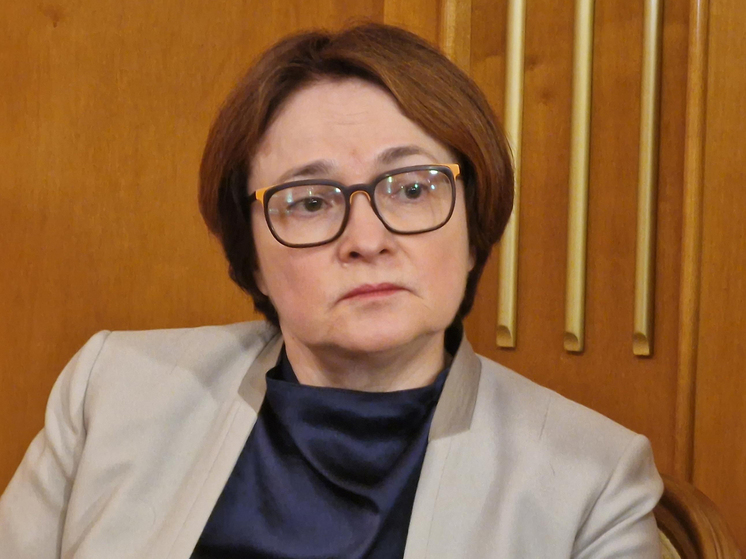The Russian Guard wanted to give the right to carry military weapons to high-ranking employees of the Bank of Russia
Deputy chairmen of the Central Bank, branch managers, deputy branch managers, advisers to deputy chairmen, can obtain the right to carry pistols and submachine guns, directors of departments and deputy directors of departments of the Bank of Russia. This initiative was put forward by the Russian Guard. The document with this proposal was published on the federal portal of regulatory acts. Why was it necessary to additionally arm the management of the Bank of Russia — after all, they do not work as collectors?

The Russian Guard proposes to supply military weapons to the deputy chairmen of the head of the Central Bank of the Russian Federation and their advisers, as well as department directors and branch managers along with their deputies. They are offered to be given pistols and submachine guns. Moreover, this initiative will not affect the Chairman of the Bank of Russia, Elvira Nabiullina, and her three first deputies.
It is curious that previously only cash collectors—employees whose duties include transporting cash—could use military weapons at the Central Bank. This was necessary, because even despite the presence of weapons, there were periodic attempts to rob collectors and their cars. The largest such crime remains the attack that occurred on June 25, 2009 in Perm. The car of the West Ural Bank was attacked and about a quarter of a billion rubles were stolen.
This time the reason for the desire to arm a wider circle of Bank of Russia employees is not indicated in the Russian Guard document. It remains to make assumptions.
Let us recall that in the last few months, attacks on high-ranking government officials and even persons aspiring to power, as well as on the heads of large companies, have become more frequent all over the world. Thus, in early May, the Turkish newspaper Yeni Şafak reported an attempt on the life of Crown Prince Mohammed bin Salman al-Saud in Saudi Arabia. Then on May 15, the 71-year-old poet, dissatisfied with Slovakia's policies, tried to assassinate his country's Prime Minister Robert Fico. As a result, the politician received several bullet wounds. Because of the shooting at a rally in the American Butler (Pennsylvania) on July 13, US presidential candidate Donald Trump was slightly wounded. The founder of Space X and Tesla, Elon Musk, the next day, July 14, said that over the past eight months there had been an attempt on his life twice. And this list is still incomplete.
Against this background, the initiative to distribute military weapons to high-ranking representatives of the Central Bank of the Russian Federation raises many questions. MK sent an appeal to the media relations department of the Russian Guard, but it was not possible to receive a response by the time the article was published.
And the press service of the Bank of Russia itself responded that this proposal was caused by the need to ensure the safety of work of the regulator’s representatives in new regions, which include the territories of the Donetsk and Lugansk People’s Republics, the Kherson and Zaporozhye regions. “The Law “On Weapons” has already granted the Bank of Russia the right to receive certain models of small arms for temporary use (Article 12 of the Federal Law-150),” the Central Bank of the Russian Federation commented on MK’s request. — The draft resolution of the Government of the Russian Federation clarifies the list of positions established by law. This initiative was discussed with the Russian Guard as part of a set of issues related to ensuring the security of Bank of Russia facilities and employees in new regions of the Russian Federation.»
In the recent history of the Central Bank, there are cases of open attacks on the regulator’s employees, which ended tragically. Let us recall that in September 2006, the first deputy chairman of the Bank of Russia, Andrei Kozlov, and his driver were shot dead in Moscow after a football match of Central Bank employees. In 2008, Alexey Frenkel was recognized as the mastermind behind Kozlov’s murder. For this crime he was sentenced to 19 years in a maximum security colony. The alleged intermediaries, Liana Askerova and Boris Shafrai, were also punished; the court sentenced them to 13 and 14 years in prison. The perpetrators, Alexei Polovinkin and Maxim Proglyada, were sent to prison: the first was given a life sentence, the second — 24 years in prison.
“In connection with this project, I remember the story when the deputy head of the Central Bank department for the Amur region, Vladimir Levkin, in 2015 year, he shot his boss and two colleagues in the office of the Central Bank in Blagoveshchensk, after which he committed suicide,” Maxim Osadchiy, head of the analytical department of the BKF bank, gives another example. “To be fair, it should be noted that he was armed not with a pistol, but with a Saiga hunting carbine and a grenade. As for attacks on deputy chairmen of the Central Bank, only one case is known — the murder of Andrei Kozlov in 2006. However, even if Kozlov had a gun then, it would hardly have helped him.”

